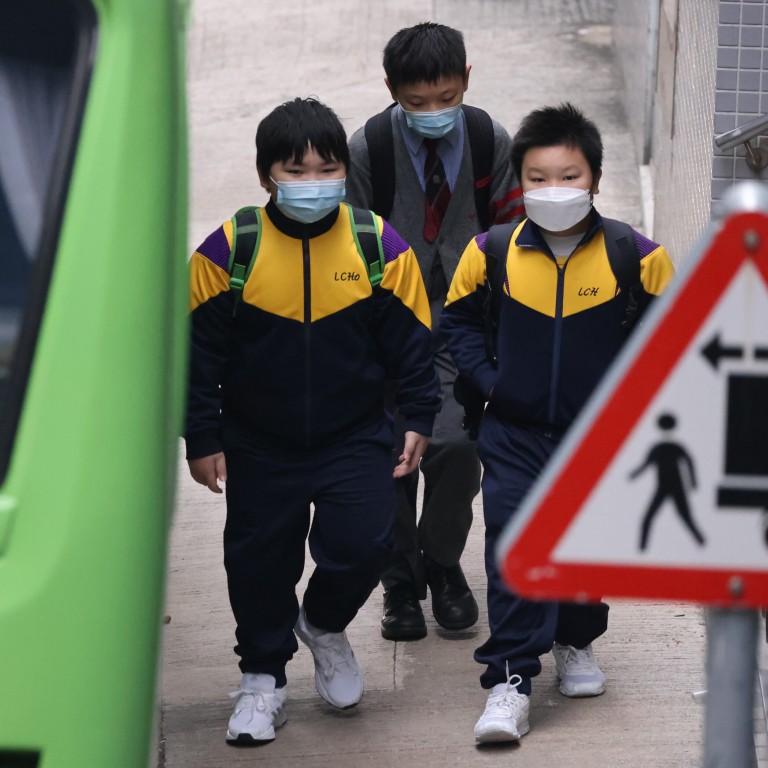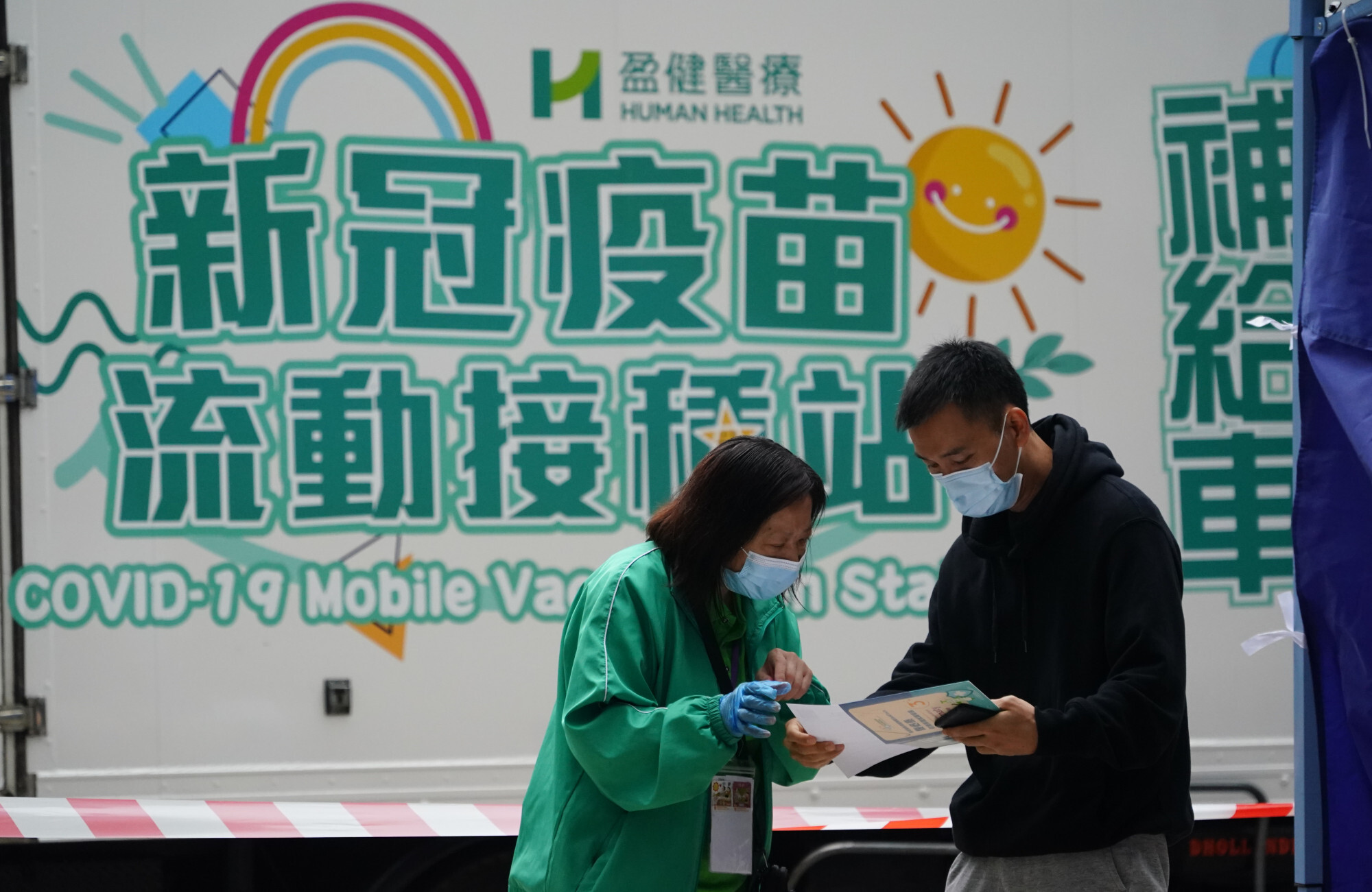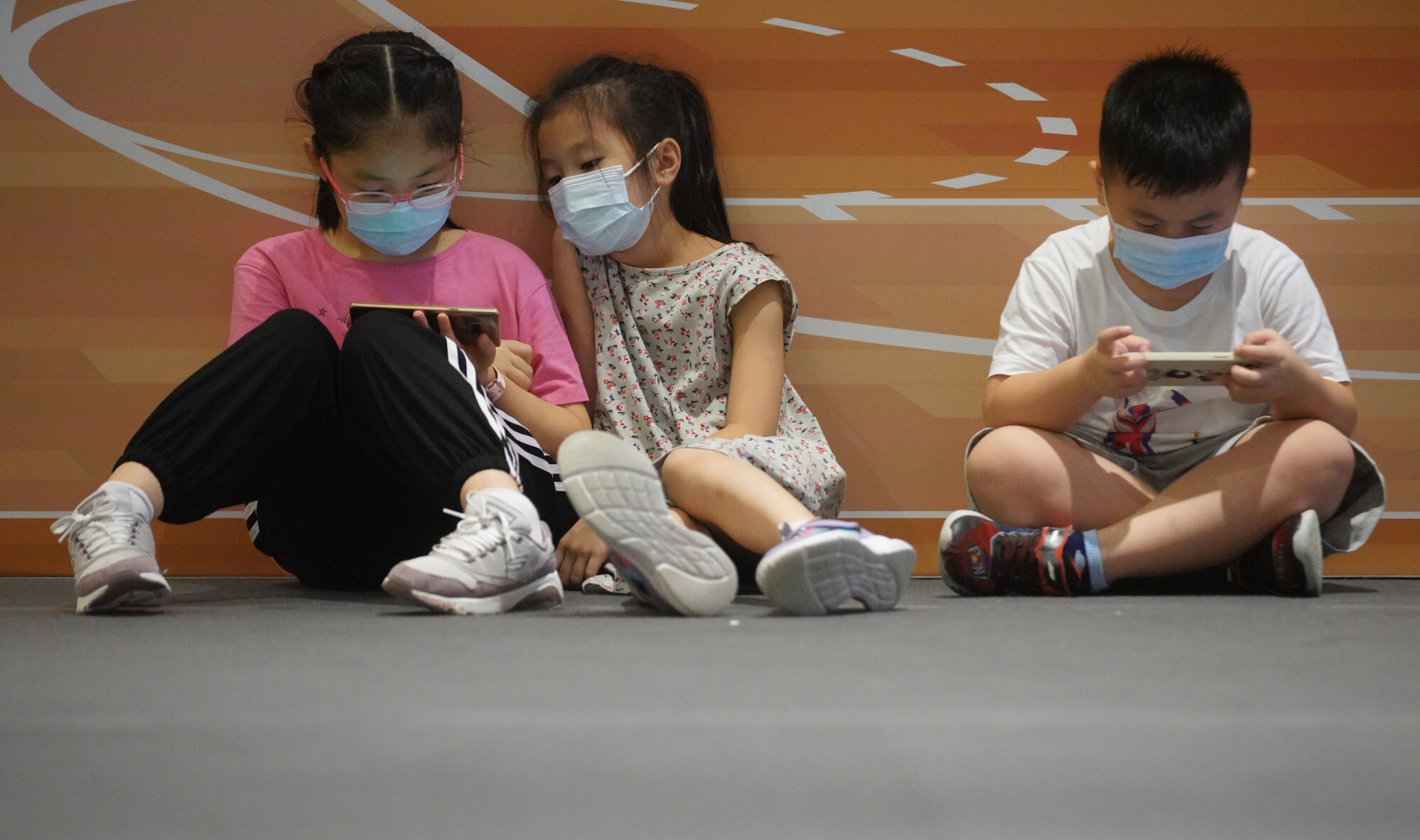
Coronavirus vaccination: will extending jabs to younger Hong Kong children lead city out of tough, zero-Covid policy? Experts urge move, but parents fear long-term effects
- Paediatrician says getting younger segment of population inoculated is needed to build protection in absence of high infection rates
- Sinovac jabs will be available to children as young as five in coming week, while ‘off-label’ reduced dosage of BioNTech will be offered after Lunar New Year
Government medical advisers on Wednesday recommended that children aged five to 11 be allowed to receive BioNTech shots as soon as possible amid an outbreak of the Omicron variant, even though the vaccine’s distributor has not applied to lower the current age threshold of 12.
Health authorities have recommended that young children receive a third of the adult BioNTech dose, a practice also adopted in Britain, and considered an “off-label” move in which a drug is used in a manner not included in the product registration. Final approval rests with the city’s health minister, Sophia Chan Siu-chee.

Studies suggest the highly transmissible Omicron variant causes less severe symptoms among all age groups. Still, experts said vaccinating younger people would reduce chances of them developing severe conditions, especially for those who were chronically ill.
Hong Kong will extend the use of the Chinese-produced Sinovac vaccine to children as young as five in the coming week, nearly a year after the city started its inoculation drive.
A vaccination centre will also be designated for children receiving BioNTech jabs, with operations likely to begin after the Lunar New Year holiday in early February. Authorities aim to ultimately set up several such facilities citywide.

“The current fatality rate of the pandemic is around 2 to 3 per cent … If we have all been vaccinated and undergone a few Covid-19 waves, the fatality rate could be pushed to less than one death per 1,000 people, and by then it will be no different from the flu,” Lau said.
When the death rate dropped to that level, it would be time for Hong Kong to consider living with the virus without imposing quarantine measures, although masks would still be needed to prevent an exponential rise in infections, Lau said.
The emergence of Omicron brought that goal a step closer if a city had a large enough population that had developed protection through infection, he said. But given Hong Kong’s low case numbers, a high vaccination rate among all age groups would be necessary, Lau added.
While children generally developed milder symptoms from Covid-19, overseas studies have found that those with chronic illnesses, such as neurological conditions, or Down’s syndrome, are more vulnerable.
A rare but serious condition called multisystem inflammatory syndrome in children, or MIS-C, could also arise in those with Covid-19 who were previously healthy, Lau said.
“Getting vaccinated can reduce the chances of MIS-C, loss of smell or taste, severe conditions or death,” Lau said.
Sinovac jabs for children as young as 5; Hong Kong logs 5 Covid-19 cases
According to government data, Hong Kong has about 400,000 children aged five to 11.
But some parents remained sceptical about getting their young vaccinated, citing concerns over unknown long-term effects of the BioNTech shot and Sinovac’s efficacy.
Sylvia Ho, who has a six-year-old son, said: “My child is still growing … I don’t know what the impact [of the BioNTech jab] will be on his health.”
She also voiced worries about the quality of the Sinovac vaccine, even though the technology involved – use of an inactivated virus – had been employed for years.
A mother of a five-year-old boy, who only gave her surname as Yiu, also raised fears about BioNTech: “No one knows the long-term impact on a child’s growth … Who knows what will happen to the child eight to 10 years later?”
She questioned the need for a jab at all, saying hygiene measures such as masks and frequent handwashing had been successful in keeping her son free from infection. She also pointed to the mild symptoms in children.
Yiu questioned why Fosun, distributor of the BioNTech vaccine in Hong Kong, had not applied to lower the vaccination age for the jabs.
“If the pharmaceutical firms are not willing to … apply to lower the age, is there some peculiarity there?” she said.
Hong Kong students taken aback by UK’s approach to ‘living with the virus’
William Chui Chun-ming, president of the Society of Hospital Pharmacists, said it was understood that a global shortage of a paediatric-formulated dose for BioNTech had stopped firms from applying, rather than safety concerns.
“It is believed manufacturing plants are at full production making the adult BioNTech vaccine, so they don’t have the capacity for paediatric ones,” Chui said.
A source said the United States, which uses paediatric formulation produced by BioNTech partner Pfizer, had a more stable supply of the product.
Both the adult and paediatric versions of the shot use similar ingredients, but a variation in the children’s formula could improve the vaccine’s stability at low temperatures, Chui said.
Globally, the European Union, Britain, the United States, Singapore and some other developed countries have approved the use of BioNTech shots on children aged five to 11.
Chui said off-label use was a legitimate practice and most commonly used for paediatric patients who required cancer, anti-infection or heart disease medication.
A British government advisory committee last month recommended that a fractional adult dose of BioNTech could be used on children.

